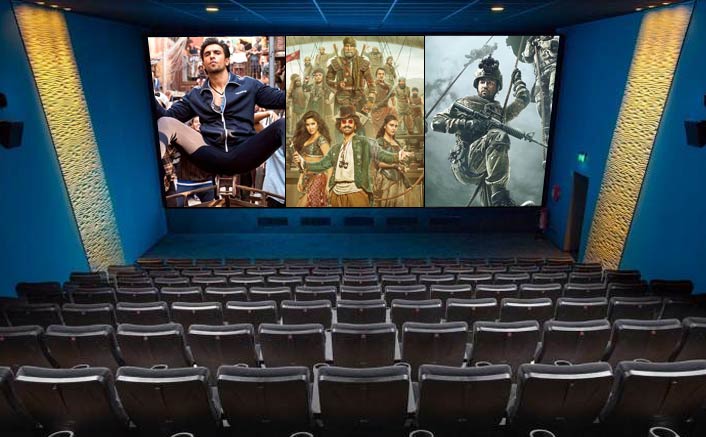India has a population of 135 crores and we have only 9500 cinema screens. That’s 1 cinema screen per 1.42 lakhs of people. Cinema screens over the last 5-6 years have gone down and this is a continuous slide. Multiplexes are adding screens up to 200 a year but Single screen closures nullify it and take it negatively. Even the footfalls are going down on an annualised basis, but ticket prices continue to rise. The average ticket price is around Rs 120-130.
The screens that are being added or even renovated are all premium. They target the rich, not the common man. Lavish lobbies, recliner seats, soothing ambience, Dolby Atmos and huge screens. These are luxuries, not necessities to watch a film. These ingredients enhance the experience and they come at a price. Today, the rich and elite of this country frequent cinemas more than the common folk. It was the other way around not so long back. The 2500 odd multiplex screens contribute 60-70% of revenue and for some films, it goes up to 90%. Clearly, the balance has shifted, Cinema is now a luxury and not a necessity.

So, is the common man not watching films? of course, he is, but just not in theatres. More and more people are watching films on television and on their mobiles than in cinemas. Today, India has 35 crores smartphones and thanks to cheap data. Indians are consuming entertainment primarily on their mobiles even traditional television channels are under threat. It’s a battle – the cinema can’t win. 9500 screens vs 35 crores smartphones screens. More and more content is being rolled out for mobiles. Trailer viewing happens primarily on mobile phones. Mobile phones coupled with OTT platforms is the new world of entertainment. It is so flexible that it is tailor-made for you. Watch it when you want, watch it where you want and watch it on any device you want. Appointment cinemas cannot compete with this flexibility. This is the new mass market, cinemas are a niche compared to the new age of digital entertainment.
Satellite and Streaming rights for Thugs of Hindustan were sold for double of what it made from theatres. Satellite and digital rights help producers recover the bulk of their investment and make box-office less significant. The bigger question is if Amazon, Zee, Netflix, Star can pay so much money for a post-theatrical release. Imagine what these guys can pay if they get the films with the theatres. There is a raging debate globally on doing away with 8 weeks to the 12-week window on a theatrical release. In my opinion, this exclusivity that theatres have is a virtual monopoly as the demand for any film is maximum in its opening week. It lets theatres sell premium tickets and even pricier popcorn.
Trending
That brings me to an issue that troubles me a lot as an exhibitor and that is piracy. It is unethical, illegal and kills theatrical business. Better connectivity and cheaper data make it even easier. What is also tells us that there is a huge audience for films that don’t want to go to theatres but watch films on the day of the release where they want, when they want and on a device of their choice. As the theatrical window is in play they can’t watch it legally anywhere hence the pirated copy beside its only 5% of the cost. Piracy is a huge loss to producers and it’s not only about the price differential, but it’s also about convenience too. With better reach and evolved business models these platforms will gun for same day release and producers just might relent.
Globally too, the scenario is not very different. The big chains like Wanda Group, Regal, Landmark, Cinepolis and Carmike are adopting PLF (Premium Large formats) in a big way. Converting their cinemas into premium ones in order to address the falling footfall scenario. IMAX screens are being added at an amazing pace. 4DX screens have caught the fancy too. Some cinemas are even offering fine dining experiences. All this comes at a price. Making a movie going expensive and a luxury commodity.
So, are movie theatres dying? The answer is no. They are evolving. Shah Rukh Khan at an event last year said that movie theatres of the future will be exclusive, premium and expensive. They will be like Broadway theatres, he concluded. Cinemas will remain part of the entertainment universe but won’t occupy centre-stage. The shift towards luxury we are already witnessing. The growth in revenues of OTT platforms is phenomenal. Netflix spends more money on content than the combined spend of the big four studios. Facebook is working on creating virtual cinema halls, where you can watch movies with your buddies from all over the world by wearing a glass. Technology and ease of access will define, how we consume entertainment. Cinemas won’t die, maybe much lesser in number, more premium but they will definitely be around.
PS: This is a guest post done by our user and all the views, numbers are strictly limited to the knowledge of the author.
Android & IOS users, download our mobile app for faster than ever Bollywood & Box Office updates!



 Follow Us
Follow Us







